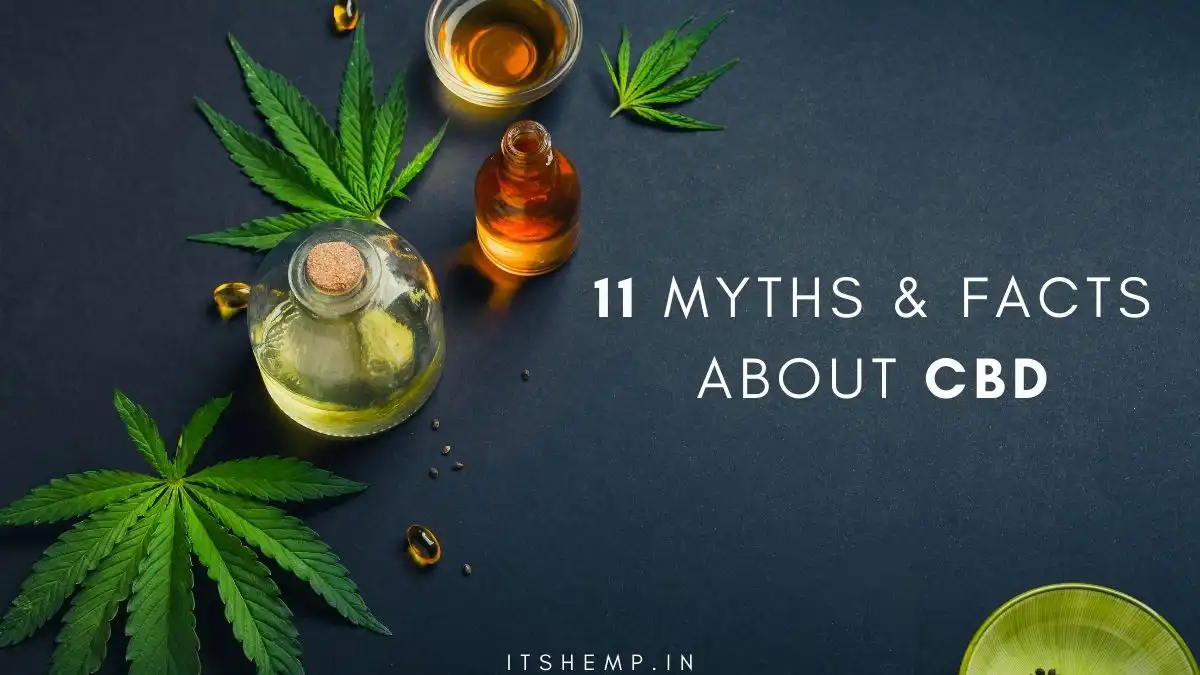The rise of cannabidiol (CBD) in the world of nutraceuticals has been nothing short of a phenomenon. Touted for its potential health benefits and therapeutic properties, CBD has generated a buzz that has sparked curiosity and, at times, confusion. In this comprehensive guide, we will navigate the world of CBD nutraceuticals, debunking myths and highlighting the facts to help you make informed decisions about this increasingly popular supplement.
Understanding CBD
CBD is a non-psychoactive compound derived from the cannabis plant. It’s one of over a hundred cannabinoids found in cannabis, and it’s gaining attention for its potential health-related applications.
CBD Facts:
- CBD is not intoxicating; it doesn’t produce the “high” associated with marijuana.
- CBD interacts with the endocannabinoid system, a complex network of receptors that play a role in maintaining balance and homeostasis in the body.
- CBD is available in various forms, including oils, capsules, edibles, topicals, and more.
Myth 1: CBD Gets You High
One of the most prevalent myths about CBD is that it gets you high. In reality, CBD is non-psychoactive, meaning it does not produce the euphoric effects associated with its counterpart, tetrahydrocannabinol (THC). CBD products contain minimal to no THC, which is the psychoactive compound responsible for the “high” in marijuana.
Myth 2: CBD Is a Cure-All
While CBD has shown promise in various areas, it is not a panacea for all health issues. It is not a cure for cancer, Alzheimer’s disease, or any other serious medical condition. CBD should be considered a complementary or alternative approach to support overall well-being, not a replacement for medical treatments.
Fact 1: CBD May Help Reduce Anxiety and Stress
There is scientific evidence suggesting that CBD may help reduce anxiety and stress. It interacts with receptors in the brain, influencing the release of neurotransmitters that regulate mood. However, individual responses to CBD can vary, and more research is needed to understand the full scope of its effects on mental health.
Fact 2: CBD Can Alleviate Pain and Inflammation
CBD has demonstrated anti-inflammatory and pain-relieving properties. Some people use it to manage chronic pain conditions, such as arthritis or neuropathic pain. However, its efficacy varies, and it may not work for everyone.
Fact 3: CBD Can Be an Adjunct in Epilepsy Treatment
Epidiolex, a CBD-based medication, is FDA-approved for the treatment of certain severe forms of epilepsy, such as Dravet syndrome and Lennox-Gastaut syndrome. It has shown substantial success in reducing seizure frequency.
Myth 3: CBD Is Completely Legal Everywhere
CBD’s legal status varies by location and is subject to change. In the United States, the 2018 Farm Bill legalized hemp-derived CBD with trace amounts of THC (less than 0.3%). However, states may have their own regulations. Internationally, the legality of CBD can differ widely. It’s essential to be aware of the laws in your area.
Fact 4: Quality Matters in CBD Products
The quality and safety of CBD products can vary significantly. To ensure you are getting a reputable product, look for third-party lab testing results, choose products from trusted manufacturers, and read customer reviews. Reputable companies are transparent about the sourcing, extraction methods, and cannabinoid content of their products.
Fact 5: Side Effects Are Possible
While CBD is generally well-tolerated, some people may experience side effects, including dry mouth, changes in appetite, diarrhea, and fatigue. It’s essential to start with a low dose and consult with a healthcare professional if you have any concerns.
Conclusion
CBD nutraceuticals offer potential health benefits, but it’s crucial to separate fact from fiction when considering their use. While CBD is not a cure-all and will not get you high, it may have value in managing specific health concerns, such as anxiety, pain, and epilepsy. The quality of CBD products and their legal status are vital considerations. As with any supplement or alternative therapy, it’s advisable to consult with a healthcare professional before incorporating CBD into your wellness routine, especially if you have underlying health conditions or are taking medications. By staying informed and making well-informed decisions, you can navigate the world of CBD nutraceuticals and explore their potential benefits responsibly.

